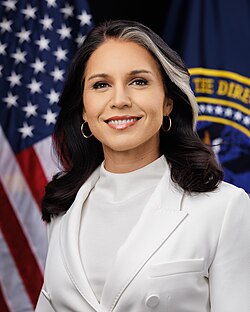The Rise and Impact of Tulsi Gabbard in US Politics

Introduction
Tulsi Gabbard, the first Hindu member of the United States Congress, has become a prominent figure in American politics since her election in 2012. Her unique blend of military experience, progressive values, and willingness to challenge the political status quo has garnered attention both nationally and internationally. Gabbard’s stance on foreign policy and domestic issues has established her as a force to be reckoned with in the evolving landscape of US political discourse.
Political Journey and Key Positions
Gabbard, a former Major in the Army National Guard, served two tours of duty in the Middle East, which significantly shaped her understanding of international relations and military engagement. Her experiences have influenced her views, making her a vocal critic of regime change wars and military interventions, a stance that puts her at odds with many mainstream political leaders.
While running for the Democratic presidential nomination in 2020, Gabbard distinguished herself from her peers by advocating for a non-interventionist foreign policy and prioritising climate change, healthcare reform, and social justice. Her candidacy brought attention to critical issues that resonate with a diverse voter base, although she ultimately suspended her campaign in March 2020.
Recent Developments
In recent months, Gabbard has made headlines with her controversial decision to leave the Democratic Party. In an announcement made in late 2022, she cited a growing divisiveness and what she described as an increasingly elitist and intolerant Democratic establishment. Following this shift, Gabbard has established herself as an independent voice, emphasizing her commitment to the core values that she believes align with the American people.
Her departure from the Democratic Party has prompted speculation about her future in politics, especially as the 2024 presidential election approaches. Gabbard has not ruled out the potential for another run, either as an independent candidate or through another platform, raising questions about how her views could influence the election landscape.
Conclusion
Tulsi Gabbard remains a unique and influential figure within US politics, with her distinct perspectives on foreign policy, social issues, and party dynamics resonating particularly with younger voters. As the political climate continues to evolve, her future in public service is uncertain but holds potential significance in shaping debates around critical national issues. Whether through continued activism or another run for office, Gabbard’s voice will undoubtedly remain a notable element in the ongoing discussion of American governance.







